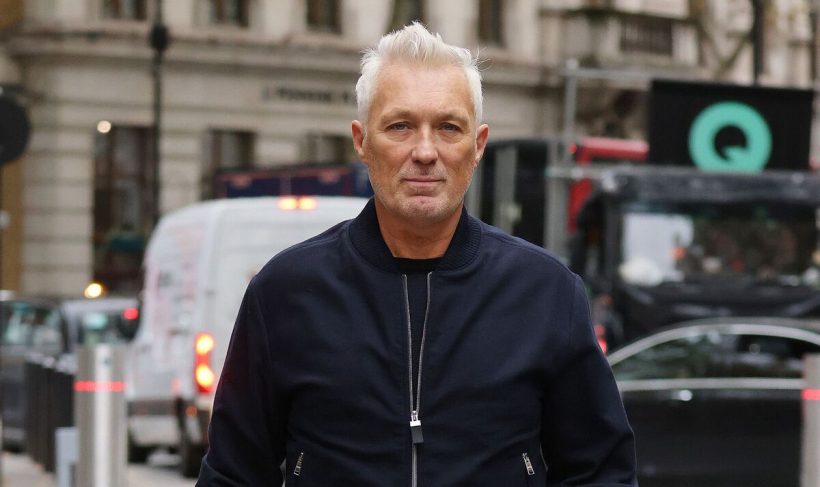Martin Kemp recalls visiting the new EastEnders set
We use your sign-up to provide content in ways you’ve consented to and to improve our understanding of you. This may include adverts from us and 3rd parties based on our understanding. You can unsubscribe at any time. More info
In 1995, Martin Kemp – then known for being part of the band Spandau Ballet – had been diagnosed with two brain tumours. Most recently, on the Dish podcast with Nick Grimshaw and Angela Hartnett, the 61-year-old spoke up about the thing that helped him recover “more than anything else”. Following an operation to remove the benign tumours, and radiotherapy, Kemp was suffering.
“My brain still wasn’t working properly from the operation,” he said on the podcast.
“To the point where, sometimes, if I wanted to walk left, I would walk right; or like I couldn’t think about putting things in order, or anything like that.
“Learning lines was just way out there. When EastEnders was offered to me it was a chance for me to get over it.”
In the candid chat, which was released on Wednesday, November 16, Kemp explained how portraying the villain Steve Owen in the popular soap helped to save him.
1697902

“It wasn’t just me taking EastEnders on because I thought yeah, it was a good gig – it was me trying to get my life back together.
“When I look back at EastEnders, it’s more than just a good job. It was the thing that helped me recover, more than anything else.”
In the four years that he took on the role of Steve Owen, from 1998 to 2002, Kemp said: “It moved me forward and left that whole nightmare behind.”
Benign brain tumours
The NHS explains a benign (meaning non-cancerous) brain tumour “is a mass of cells that grows relatively slowly in the brain”.
DON’T MISS
Man, 43, told he has stage 4 cancer after getting flu-like symptoms [INSIGHT]
High cholesterol ‘serious’ signs to spot include leg pain [ADVICE]
Dyschezia could signal spreading bowel cancer tumour [INSIGHT]
The health body elaborated: “Non-cancerous brain tumours tend to stay in one place and do not spread.
“It will not usually come back if all of the tumour can be safely removed during surgery.”
While benign brain tumours are not cancerous, they’re still considered “serious and can be life threatening”.
Slow-growing tumours, in the beginning, may not cause any noticeable symptoms.
View this post on Instagram
A post shared by Martin Kemp (@martinjkemp)
Yet, as the tumour grows, the person affected might develop:
- New, persistent headaches
- Seizures (epileptic fits)
- Feeling sick all the time, being sick, and drowsiness
- Mental or behavioural changes, such as changes in personality
- Weakness or paralysis, vision problems, or speech problems.
“See a GP [i.e. doctor] if you have symptoms of a brain tumour,” the NHS advises.
People who are more susceptible to brain tumours include those over the age of 50, or those who have a family history of benign brain tumours.
View this post on Instagram
A post shared by Martin Kemp (@martinjkemp)
While tumours can successfully be removed via surgery, if some of the tumour can not be removed, other treatments are utilised in addition to surgery.
Just like Kemp, one treatment that could be offered is radiotherapy, which helps to control the growth of the remaining abnormal cells.
Another treatment option is chemotherapy, but treatment will depend on a medical overview.
Martin Kemp is on BBC One’s Saturday Kitchen, November 19 at 9.15am.
Source: Read Full Article






